Content
What Is Marketo and How Does It Work?
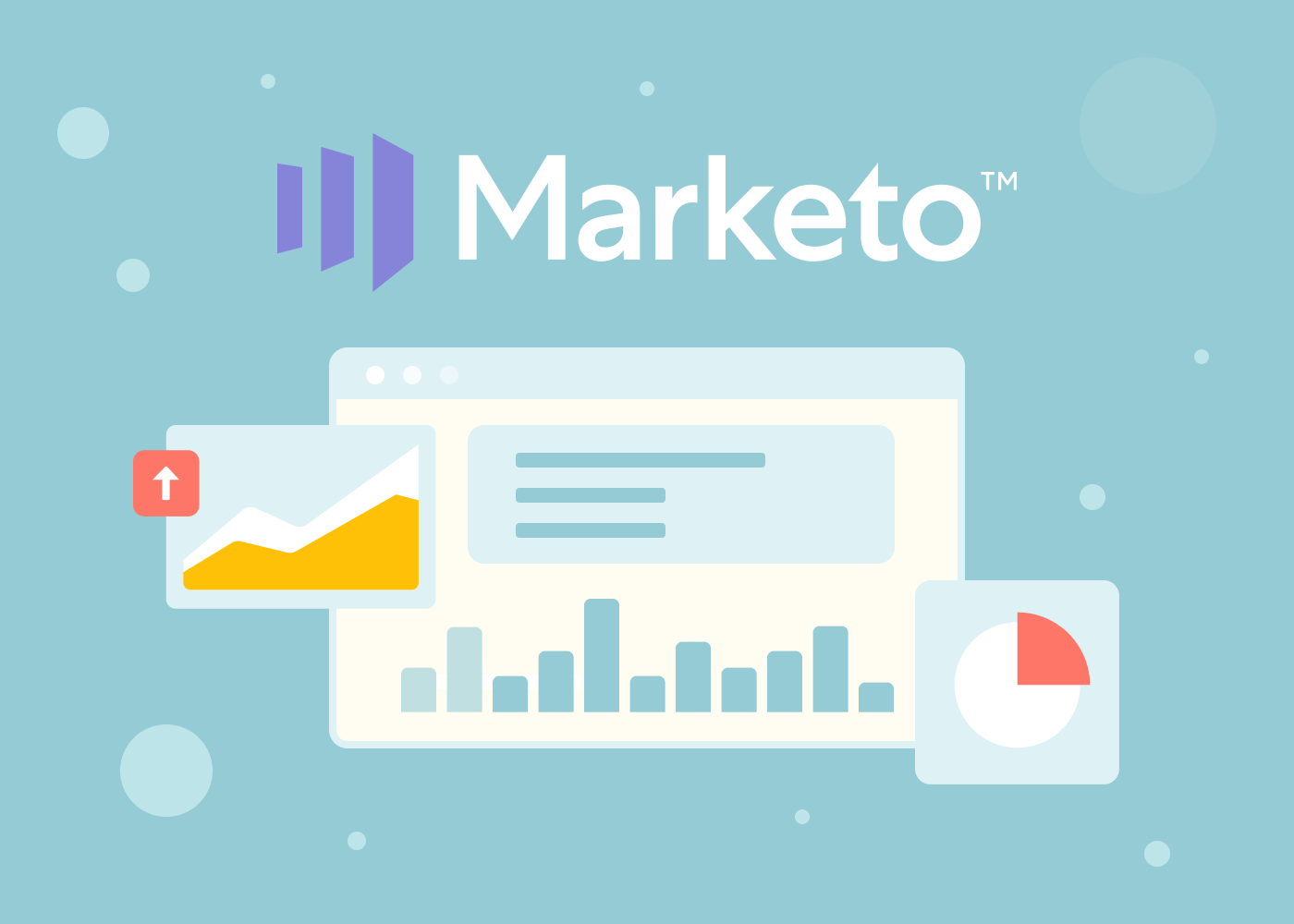
Time to read: 17 minutes
Before discussing what is Marketo, you need to understand why the automation of customer relationship processes and within the company has become so important in business over the past decade. 75% of the company leaders surveyed said they actively use automation in marketing.
The fact of the matter is that automation kills two birds with one stone: it helps to save employees’ time and company money. On top of that, automation helps boost customer loyalty, ad campaign performance, and scaling processes.
Lets talk about itHave a project in mind?
Talking About Marketing Automation
Marketing automation is achieved through the use of software that allows you to reduce time and save human resources by integrating various platforms such as Marketo with the sales funnel and beyond. Over the past decade, the functionality of marketing automation platforms has grown significantly and the benefits are no longer so easy to count. Read more on the reasons to integrate marketing automation. Here are some of them:
- Decreased human factor
So far, there are no effective ways to shift the role of decision-making to algorithms, but there is an opportunity to simplify the calculation of data for the marketer. At this stage, miscalculations and mistakes are inevitable; a person cannot take into account all the necessary factors. With the help of automation, it becomes possible to simplify decision-making for the employee, freeing them from tedious manual tasks of collecting and calculating data.
- Platforms integration
Adobe Marketo can be integrated with both CRM and other business systems (for instance, HubSpot). This is an important detail, integration may be needed both for synchronization with partner companies and between different departments of the same company, social networks, and other platforms. System flexibility is the first requirement you should have for modern platforms.
- Data central
This is a major task of the marketing automation platform and one of the main advantages of any CRM over manual data entry. This requires integration and trained staff. To illustrate why data centralization is so important, think of one group of customers — inactive customers. Thanks to CRM, the company gets the opportunity to combine their data within a single database, which is very difficult to do without automation.
- Optimization of marketers’ performance
By reducing the number of man-hours, the marketer can focus on strategies, thoughtful data analysis, and content. More than 80% of company leaders say automation has led to faster workflows and enabled more workers to migrate to teleworking.
- Extended in-house relationships
Thanks to CRM, like 365 Dynamics, it becomes possible to connect, for example, the sales and marketing departments (or sales and logistics, etc.). This will give the most complete picture and answer to the question of whether marketing solutions are working in the right direction.
- Personalization
Since you get data analytics using software algorithms (Marketo and Magento), it becomes possible to personalize the relationship between the client and the company. For this, the participation of an experienced marketer is not even necessary, the lead promotion along the funnel can be automated. We have seen this happen when we were developing websites in Shopware and Magento.
- Customer loyalty boost
Customers get more relevant information, special offers, and special treatment, which increases the loyalty of your customers. They can contact support at any time. Support, thanks to CRM, can divide customers into categories and have information in advance about the steps of this or that customer, which will speed up the solution of issues at hand.
- Better targeting
With insightful analytical data, you gain knowledge not only about the users who need to be included in the targeting strategy but also about those who need to be excluded for the best advertising effect. This is all the more important if the scaling of advertising has led to an increase in advertising costs, it is necessary to look for the most suitable software for categorization.
Now, let’s take a look at the features that provide all of the listed benefits of automated marketing.
Content creation/promotion
First of all, marketing automation involves the use of software and technology solutions to create and promote content. By sending offers or offering ads to users, you get the opportunity to study their reactions.
This way, you can clearly see the flaws in your promotions and notice the patterns that stimulate the most interest in users. Based on this knowledge, you can create ad campaign layouts that will speed up and scale your marketing department’s performance. A huge share of work can be perfectly handled by Marketo marketing automation.
At the same time, by being able to analyze the behavior of your users, you can deeply personalize the relationship between the customer and the company. Let's take a closer look.
Lead generation automation
In this field, CRM has great potential, the main task is to obtain contact information. Contacting support, feedback about the company, subscription, discounts - all this should lead to the fact that the customer leaves data that will allow converting them from a cold lead to a hot one through advertising and personalization. All this data can be stored in a single system that helps motivate customers in the most reasonable and original way.
Lead engagement and management
The second important aspect of automated marketing is the ability to evaluate a lead after their interactions with your content. You can determine if a lead is ready for a special offer or a call, analyze their level of trust toward your company. Such an account-based approach makes it possible not to spray attention on all possible customers, but to focus on those who have automatically passed the lead funnel and are ready for special offers. Here a huge field for customer interactions appears:
- Selection of content on the site according to previous actions
- Discounts and gifts
- Mailings and contextual advertising
- Calls and SMS
Once again, we see how optimizing manual processes allows us to significantly improve the quality of service thanks to CRM. Now let's get down to practice.
Marketo Marketing Automatization
The Marketo software is designed mainly for medium-sized businesses. Marketo is a software as a Service (SaaS) platform built specifically to meet marketing needs. Adobe Marketo is capable of all of the above functions, but its functionality is not limited to that as Marketo can also help explore:
- Duration of the site visit
- Clicks and views
- User email, name, address, company, and title
- Data deduplication
We can see that Marketo is more focused on B2B (Business-to-Business) interactions than on B2C (Business-to-Consumer).
Is Marketo reliable enough?
The overriding question is: How safe is Adobe Marketo to use? Marketing services provide a company with a huge amount of data and customers are very dependent on the safe storage of it.
The first threat to be feared is the inexperience of the users themselves. Please note that when using Marketo marketing automatization, the company also uses Google services through which it gives permissions and data to other organizations. Each time a company introduces different emails and gives permissions, the company puts the security of its system at risk, lowering the level of reliability. You also need to remain vigilant when allowing categories to be used by users and to ensure that categories that are exposed to the public will not harm your organization.
Adobe Marketo is the software with all the necessary security elements that are used in the modern market. But they must be used wisely, experienced tech support must be involved in this. Marketers are not sysadmins and the following tech aspects must be taken into account to minimize risks:
- SSO: Marketo can be integrated with a single sign-on system that will protect the business from departed workers. Thus, the employee cannot receive data that could destroy the organization from the outside.
- HTTPS: Marketo has all the powers to convert web pages to SSL for increased security.
- Data encryption: This is a necessary function in case an unauthorized user did manage to get into the system. Marketo complies with GDPR (General Data Protection Regulation).
Marketo certification
You must be certified to use Marketo. Users have 150 minutes per test (75 questions), which will test their basic marketing knowledge. Marketo certification will be valid for two years after passing the exam. The test can be taken both online and at the center. The certification costs $225. Adobe recommends having at least one or two years of marketing practice and paid courses under your belt if you want to take the test.
Benefits of using Marketo
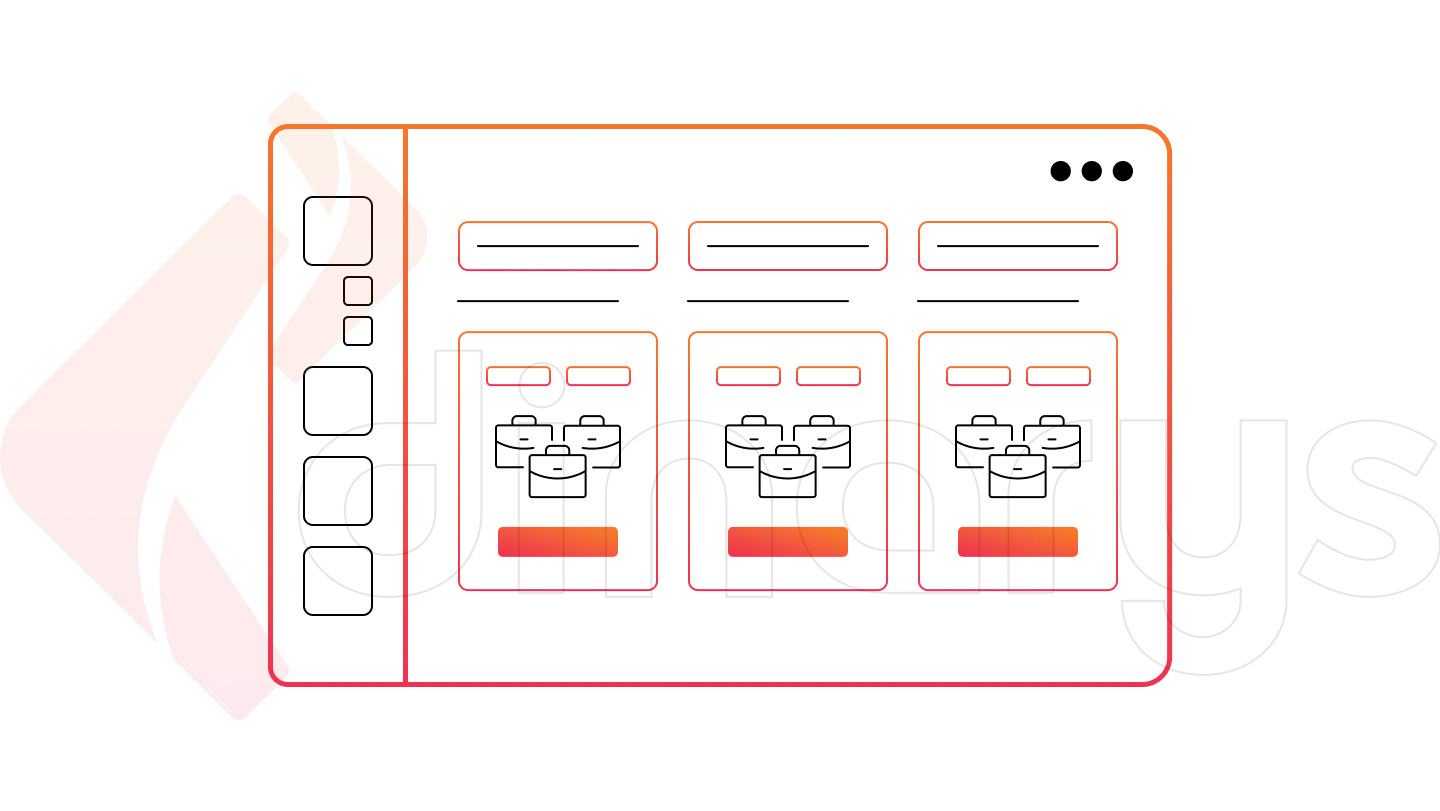
- Intuitive UI with extensive customization opportunities.
- System flexibility: You can easily get rid of all the unnecessary analytics or switch it back on when you need it.
- Marketo pricing: You can choose the best price/quality plan for your company. This is because Marketo is based on 7 modules that can work individually.
- Data integration and export/import: For instance, CRM Salesforce or 365 Dynamics runs on the same platform, simplifying Marketo integration or transition from one platform to another.
- In-depth analytics: Success Path Analyzer provides a good opportunity to build and strengthen the relationship between your marketing strategy and the revenue spent on it.
It is advisable to look at Marketo's competitors for a more objective overview, its closest competitor is HubSpot.
HubSpot vs Marketo
HubSpot is a cloud storage-based marketing CRM designed to automate inbound marketing and sales. 125 thousand sites were built based on HubSpot, while on Marketo - 20 thousand.
As mentioned above, Marketo is more targeted at B2B businesses. While HubSpot provides the ability to influence in detail every stage of the sales funnel, Marketo is more focused on analytics and automation. This is the most general idea of the differences, now let's get down to specifics.
Accessibility
Customization of Adobe Marketo is its absolute advantage but it is also a drawback at the same time. All custom elements need to be supported as opposed to HubSpot - its interface is more intuitive and coherent, which allows HubSpot to be used equally well across various industries. This is important because reducing training time means saving money, staff time, and reducing possible errors.
In turn, Marketo offers a modular system, which is good for savings but may complicate future work.
Support and education
Marketo University provides paid courses. HubSpot Academy does this for free and its courses go beyond marketing training. If we recall the previous point, then this is doubly worse for Marketo - the complexity of use and weaker training of personnel.
Marketo support is usually unresponsive for longer than HubSpot support. And even HubSpot only responds after a few hours. Feedback from G2 testifies to the same:
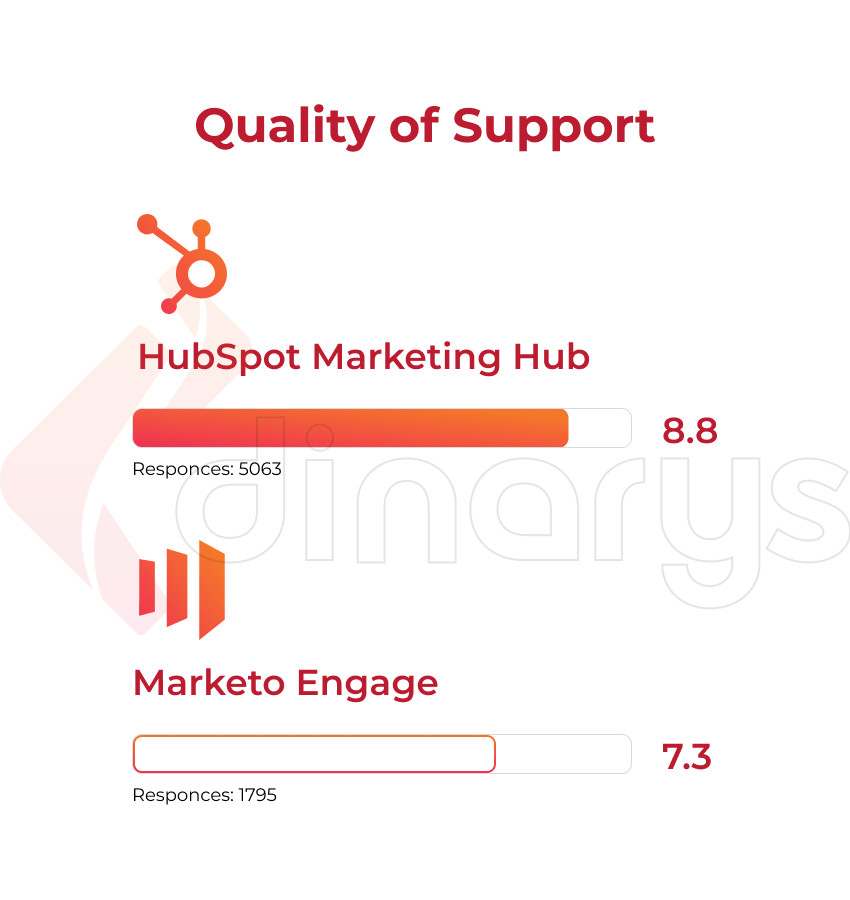
Corporate use
For a long time, Marketo was considered as the best system for corporate use, now HubSpot came close to it, but did not win. For example, robust partitioning was added to HubSpot, but it still focuses more on end-to-end marketing than process automation.
Toolset
Both services in the discussion have a common set of tools:
- For analytics and reporting
- For blogging
- For monitoring social media
- For SEO and optimization
- For integration with CRM
Lets talk about itHave a project in mind?
Automation. Here, HubSpot and Marketo are equally good but in different directions. HubSpot helps achieve a well-automated workflow that leads to a better understanding of potential customers. In HubSpot, they can be conveniently structured according to your intentions and lead generation strategy.
Marketo marketing automation, on the other hand, allows you to create a suitable automated way of conducting dialogues, which, again, is easier to do for a corporate business with a more understandable target audience. Otherwise, these are two equally good marketing automation software pieces.
Account-based marketing. Historically, Adobe Marketo has had the best offerings for Account-Driven Marketing (ABM), HubSpot needed additional integrations. Now HubSpot has a single built-in tool that puts it on par with Marketo.
Customizability of qualifiers. With the growth of a company, there is always a mess with a huge number of buyers and the difficulty of distributing them along the sales funnel. Good automated marketing software should be able to help solve this problem.
Marketo is capable of producing a single number that indicates the effectiveness of the content of the marketing campaign, and in this regard, Marketo loses to HubSpot.
HubSpot has numerous metrics that indicate profitability, performance on a case-by-case basis, and so on.
Lead conversion. Marketo software helps convert visitors into buyers through CTAs, website promotions, and other inherent automated marketing capabilities. But HubSpot is definitely the lead leader. HubSpot is able to interact more deeply with CRM and in some respects does a better job with automated email marketing and branding. With HubSpot, it's just easier to attract new users to a site with its e-commerce granularity.
Filtering. Filtering involves viewing the total number of customers and then categorizing them by tags and labels, which helps to simplify the personalization of customer relationships and improve targeting success.
HubSpot cannot boast of anything special here that would distinguish it from other alternatives while Adobe Marketo allows personalization right on the page, provided that the filters are correctly created. That is, with the help of Marketo it is possible not only to filter users (by recognizing the location, measuring the duration of the visit, etc.) but also to simultaneously submit relevant information on the site. On the other hand, using HubSpot in this regard is easier for the laymen, but also deprives them of the benefits.
Customer retention. New customers are always expensive. With the advent of CRM, it became possible to simplify customer retention because now there are unified databases. Thanks to automation, you can easily get all the necessary information about a customer and it is easier to maintain their loyalty with special offers, cart reminders, and so on.
In this aspect, Marketo CRM, with its focus on B2B, could not lose. After all, the loss of several customers in this sector is tantamount to collapse. Indeed, Marketo does a better job of personalizing relationships. The software helps to better publish the blog or the same email at the right time. Although HubSpot loses in this criterion, it has a different preference. HubSpot is able to create ad campaigns itself and send out content automatically, eliminating filtering problems, which is important for customer retention.
Pricing
All in all, HubSpot is cheaper than the usual Marketo pricing, let's start with software installation.
It will cost $6,000 to adapt an enterprise to HubSpot while for Marketo this is only the starting price, with the final cost ranging from $6,000 to $19,500.
Price per month of use. The starting price for Marketo is $895 while for HubSpot it is only $45. Unlike Marketo, HubSpot has fixed service prices:
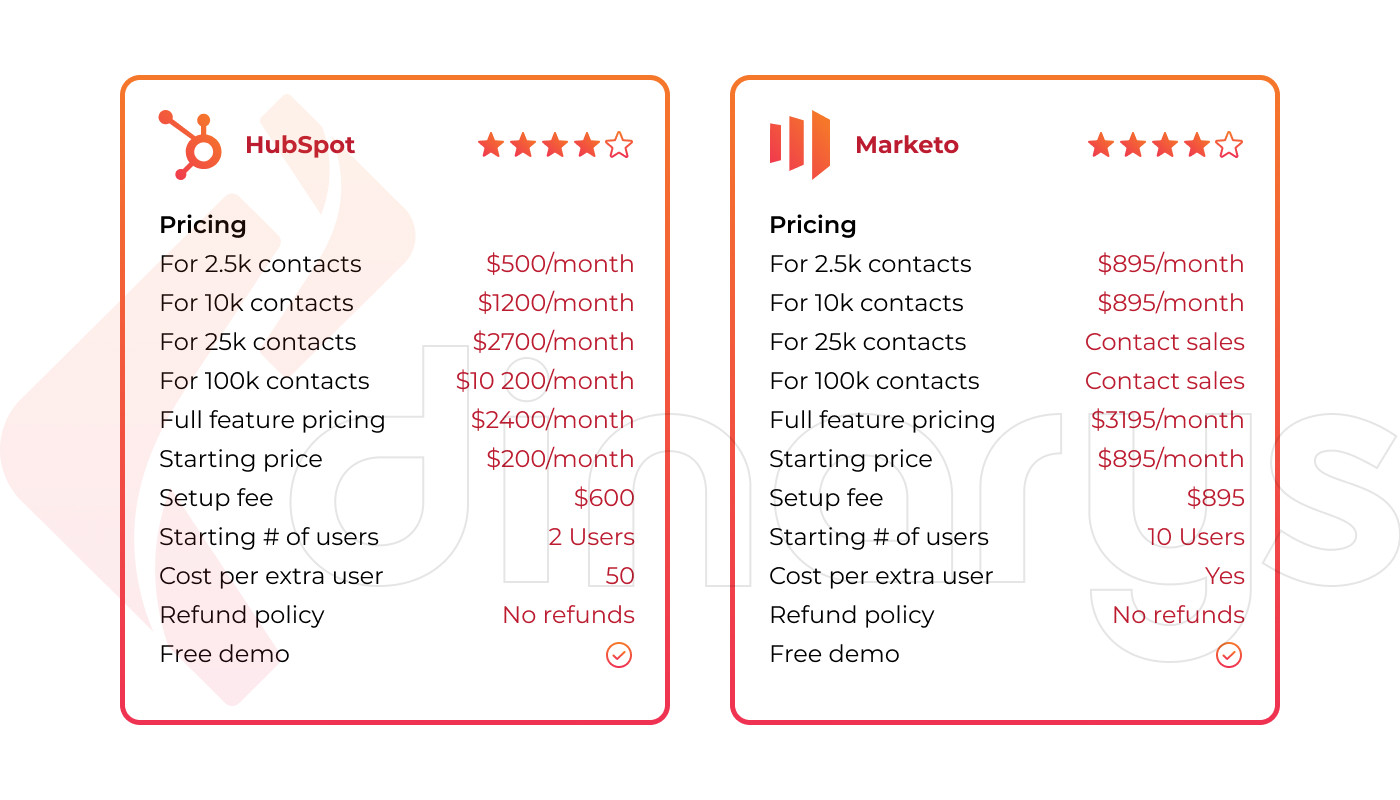
Integration: Marketo or HubSpot?
Marketo software can be integrated with CRMs such as 365 Dynamics, Netsuite, Salesforce, Zoho, and other less popular CRMs. On the other hand, HubSpot has a free CRM built-in. Thus, Marketo and HubSpot fall into different categories again: HubSpot is better for small businesses, Marketo for medium ones with an existing CRM. This explains why these two services received almost the same number of points on G2:
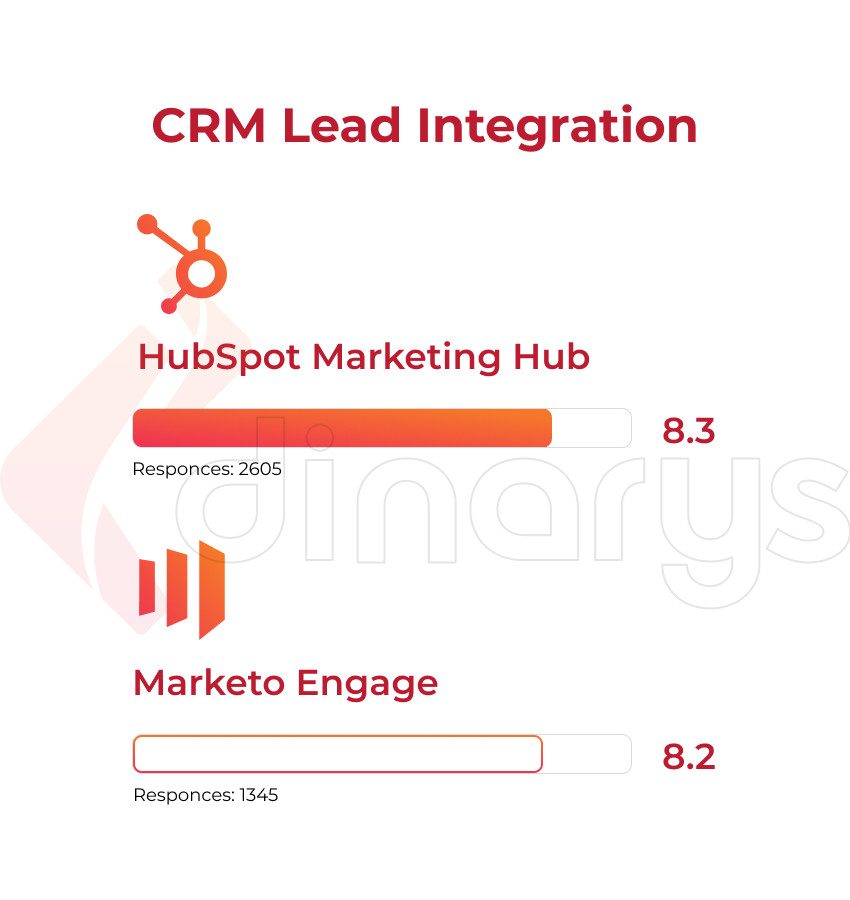
HubSpot also has good integration with CRMs like Salesforce, Pipedrive, Freshoffice, and so on. HubSpot also has a (free!) integration with Magento or Shopware developed by Dinarys.
Marketo integration with HubSpot. Integration is possible between these software solutions. It kind of allows combining the best of both worlds. Synchronization between systems is convenient and allows you to synchronize data when needed and select the necessary data for synchronization using filters. You won't have any problems with deduplication and two-way data synchronization.
Pardot vs Marketo
Salesforce Pardot is a B2B marketing automation solution. This one serves as a great comparison software option as it meets the requirements of the same segment. A lot of people choose Pardot precisely because it's connected to Salesforce CRM and can sync in a few seconds.
Accessibility
Pardot's Engagement Studio is an easy-to-use interface that, however, requires significant experience to use. At the same time, as in the case of HubSpot, Marketo loses in usability for the same reasons.
On the other hand, if you plan to perform such simple functions as sending emails, changing, and entering data - Marketo and Pardot are equal. Again, it turns out that Adobe Marketo loses out in ease of use for an inexperienced user, but fully meets expectations through customization and is well suited for experienced users.
Support and education
In the aspect of support, you may notice that Marketo and Pardot differ less from each other than Marketo and HubSpot:
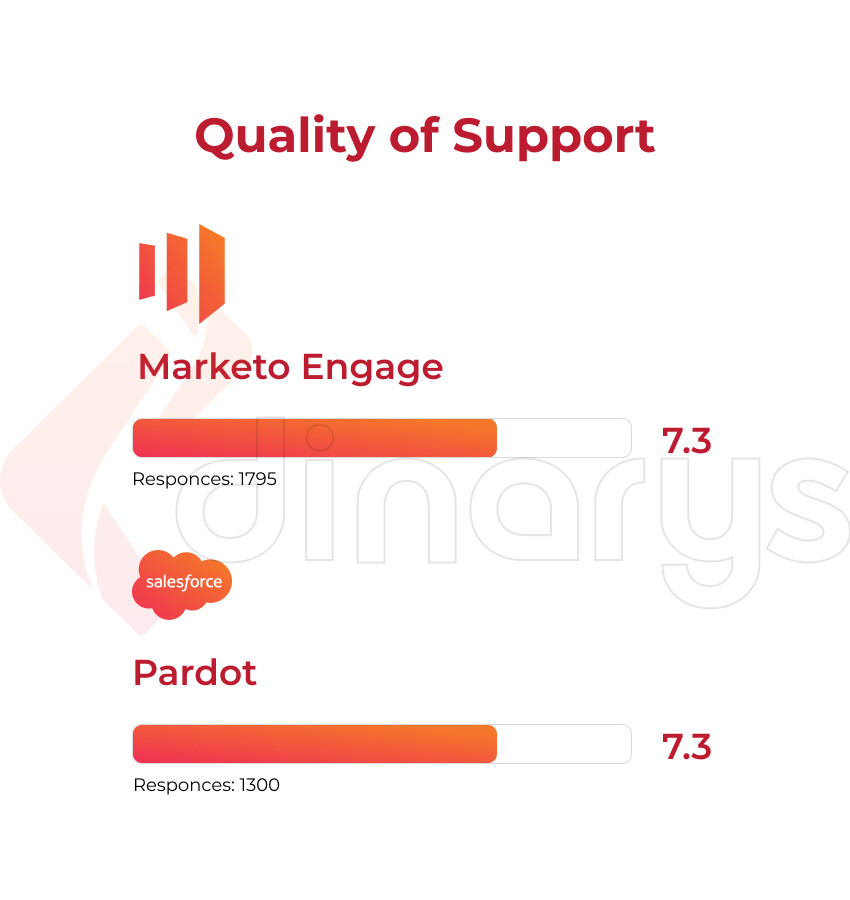
Unlike HubSpot, where you can call, email, chat, even on weekends, Pardot and Marketo support have more limited functions.
The Pardot Knowledge Base gives unlimited access to all Pardot users. There, you can read lectures, articles, study entire modules, and watch webinars. As we have already found out, Marketo takes a tuition fee and cannot boast of the same volume of knowledge being readily available.
Features
Automation. Marketo marketing automation offers a wide range of automation tools. Marketo's “smart campaigns” allow you to control all the necessary processes. The main ingredients of smart campaigns are smart lists, scheduling, and flow.
Pardot offers automation and segmentation rules that track variables in the same way as smart campaigns. But the Pardot automation rules imply their complex combination and extra integrations, while Marketo CRM's Smart Campaigns are self-sufficient, albeit less flexible.
With the help of Marketo, it becomes possible to create marketing templates and embed ads in them. Then, they can be copied and used in multiple workflows. Pardot can centralize all social networks and sites for an ad campaign, but it cannot replicate the campaign automatically.
Lead scoring. Pardot has two ways to measure the success of a marketing campaign: score (number of leads, clicks) and grade (how close a potential lead is to an ideal customer profile). These two criteria make it clear if the targeting is correct, as it reflects demographic data.
Marketo score can show how engaged a user is and how they fit into the ideal customer profile. Marketo collects all data in a single number.
Analytics. What does Marketo do in terms of data analytics? Brings to light the most profitable and effective strategies through in-depth analysis models. You can also share your results with other companies for cooperation using Marketo. Pardot is more limited in terms of analytical functionality, but it provides insights into the most essential business metrics. Pardot's A/B tests also make it possible to decide on the best marketing strategies.
Lets talk about itHave a project in mind?
Integrations
As already mentioned, Pardot has a big advantage in the ability to easily integrate with Salesforce CRM and Salesforce Person Account record types, which ensures fast synchronization. Salesforce is one of the best CRMs on the market today.
That being said, Pardot's integration options aren't limited to Salesforce. Pardot integrates well with Google Analytics in case Pardot's built-in tools aren't enough. Other easy-to-integrate programs include Sender Score, Email On Acid, and SurveyMonkey.
We have already touched upon the possibilities of Marketo integration, but there are several more interesting integrations, including Dropbox, Magento, Amazon, all well-known social networks, and so on.
Pricings
Pardot loses here - the initial Pardot plan costs $1200 while the price tag for Marketo is ~$895. At the same time, Pardot has fixed pricing, which is not the case for Marketo. Here are Pardot's plans:
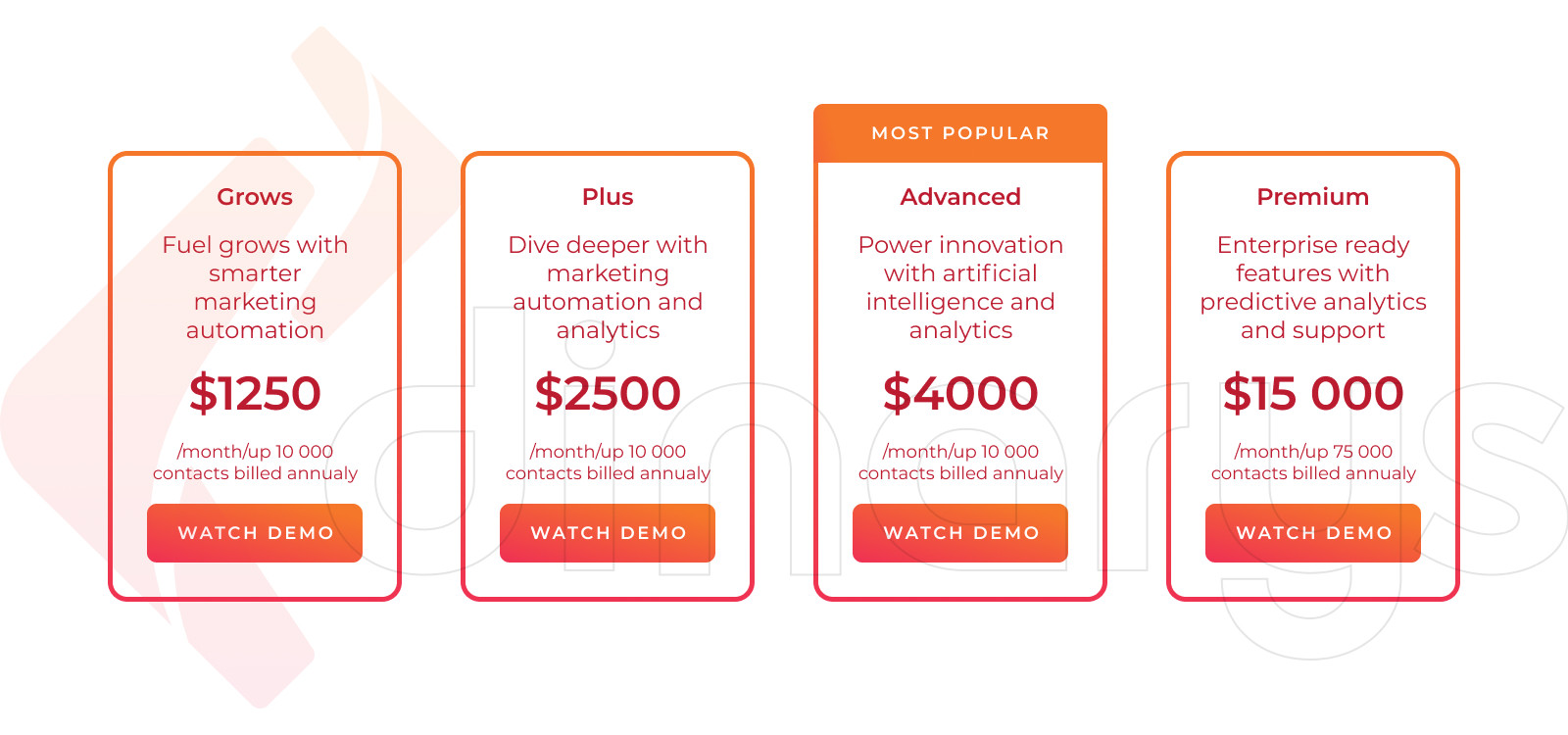
Marketo vs Eloqua
Oracle Eloqua is yet another standing-out B2B marketing automation software solution that can stand a competition with Salesforces Pardot or Adobe Marketo. Without dwelling on the history of this vendor, let's move on to its functionality.
Features
Segmentation and accounts. Eloqua allows you to embed targeting and filtering across your entire sales funnel. Thus, the marketer can track all customer actions from multiple channels and understand the user's readiness to purchase. It's an indispensable e-commerce tool and an obvious advantage for personalization.
At the same time, Eloqua can be connected to Oracle Data Cloud, which will further increase data volume and improve customer identity. Also, in the case of a transition, or integration, to/with another platform (e.g., Magento), you can have absolutely no worries about your data safety.
In turn, Marketo also has successful targeted marketing tools, but in a different vein. For example, Marketo software is able to effectively research a website to optimize search by selecting the most relevant keywords. Also, Marketo helps to collect data in such a way as to best select customer information for subsequent targeting in third-party services: LinkedIn, Twitter, and so on.
We must say that Marketo's segmentation works better than Eloqua, as it offers more options. Marketo can use the metrics you choose to determine which accounts a user might potentially be interested in. Marketo wins at this point, thanks to its customization capabilities.
Email. Eloqua software allows you to make personalized mailings to different categories of users at one time using the dynamic content builder. Compared to manual work, this is much more convenient, but this functionality is poorer than Marketo.
Firstly, Marketo software in this case offers ease of use, as it has a visual editor and the ability to create templates. Marketo's built-in tools suggest sending emails based on user actions or inactivity (as is the case with inactive customers). Eloqua does not have such functionality, which is strange, since sending emails is one of the most important tasks of automation.
A huge plus for Marketo is its Magento integration. Marketo integration offers deep synchronization, better trigger automation, and advanced analytics. The Marketo Magento integrations are successfully developed by Dinarys.
Analytics. The Eloqua closed-loop system is designed to understand the behavior and triggers for customers, which helps to quickly respond to changes and influence the selection process. This system is able to display engagement metrics for different channels, so the user can see which campaigns need to be improved and which ones are successful. Eloqua is linked to the Eloqua analytics system, which allows for a deeper comparison with the financial sector, to gain a greater understanding of sales in comparison.
Adobe Marketo explores the customer journey from sign-in to purchase, and it seems that learning individual marketing campaigns will not be as easy for you as in Eloqua, as it involves a lot of manual work. At the same time, according to reviews in G2, they turn out to be equal (note the nervous amount of reviews):
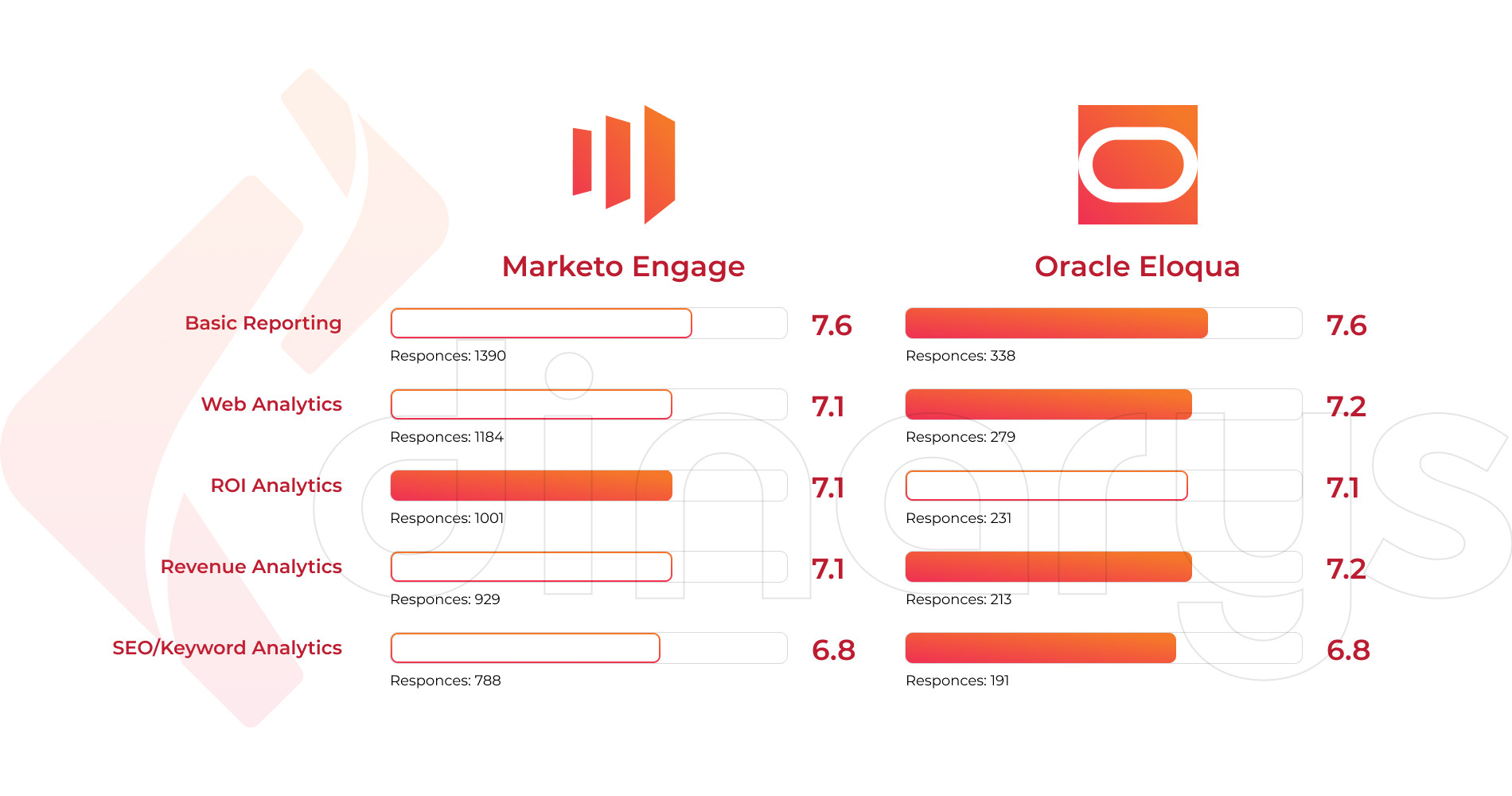
Integrations
Like all other reviewed platforms, Eloqua has huge potential for integration with other services, but the quality of the integration is important. Eloqua integrates well with social media, even Chinese WeChat has been integrated with Eloqua to interact with the Chinese market. Still, the best integration Eloqua has to offer is the Oracle CRM integration. At least because all other integrations will be difficult to install and the help of developers may be needed - this property of Eloqua should be kept in mind.
Marketo integration offers vast integration opportunities with well-known services and this number exceeds a thousand. In this area, it is the experience of using integrations that is important, and Marketo has more of it.
Pricings
The basic version of Eloqua costs $2000 per month. Standard - $4000, and Corporate will depend on the number of contacts. Marketo pricing has the best price on average, although its price is custom and uncertain. The basic version will, on average, come out at half the price of the basic version of Eloqua.
It is important to understand that by choosing Eloqua, you also face some uncertainty in the price, this happens with all the platforms that we reviewed in this article. It is also worth mentioning the cost of integration, using CRM, and so on.
Summary
With all said and done, the ultimate conclusion should not be drawn on the basis of the price and popularity alone. See through a full list of services provided and juxtapose them with your major and minor business requirements and needs. Hope these Marketo insights and marketing automation platforms reviews will help you get a headstart.
For e-commerce experts’ help and consultation, just contact the Dinarys team. As an Adobe and Shopware Solution Partner, we have built and supported hundreds of e-commerce projects on their way to success.
Lassen Sie Profis Ihre Herausforderung meistern
Unsere zertifizierten Spezialisten finden die optimale Lösung für Ihr Unternehmen.



